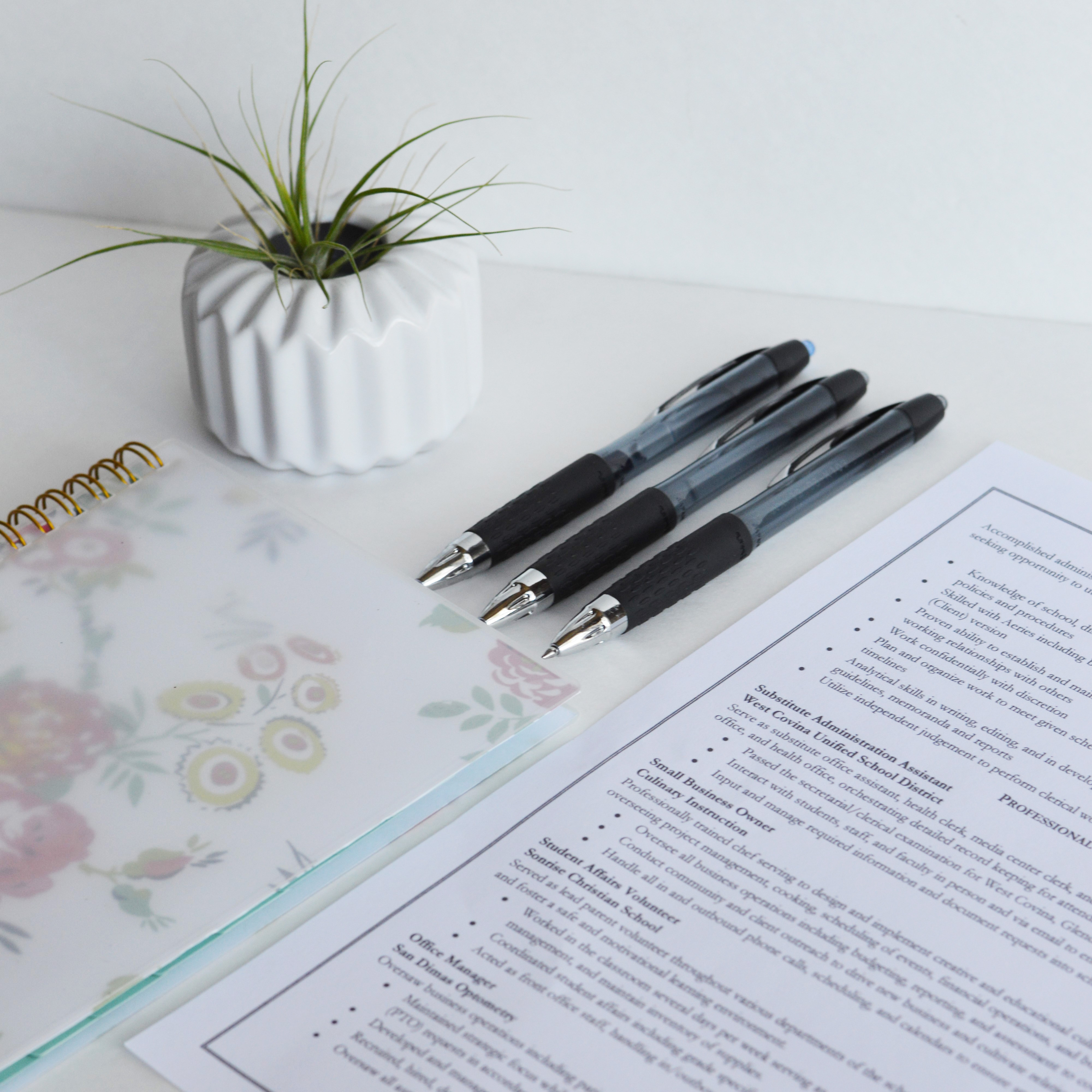How long should your resume be? The truth is, it depends. The way I always explain it to clients is if you really need the extra page and have useful career information (i.e. important metrics or well respected companies/jobs) to include, use it. However if you can easily condense all important information to one page that is reasonably spaced and reader friendly, go for that.
Rule of thumb:
My general rule of thumb is that if you have 1/3 of a page or under on the second page, try to make it fit by searching for “fluff” words, extra spacing, etc. If you have more than 1/3 of a page and everything is important content about your career, it’s actually better to have it spread out between 2 pages to make the document more reader friendly. Note that the key phrase here is “reader friendly”. If you can fit everything onto one page, but your resume is dense and hard to read, that won’t benefit you.
If your resume is not skimmable, (Studies show that hiring managers and recruiters look at individual resumes for an average of 6 seconds each) it is basically worthless. That statement may seem harsh, but the reality of the job market suggests this is true. Someone who presents an information dense resume squeezed onto one page with half inch margins is almost sure to get very little attention solely based on the fact that no one wants to sift through it.
The goal of a resume:
Many people think that the goal of a resume is to get you a job, but the real goal of a resume is to get you an interview. A resume alone can’t land you a job, but it can intrigue others to want to learn more about you. Think of your resume like a movie trailer. It highlights all of the best parts and persuades people to want to learn more (in an interview).
What you need to ask yourself:
When answering the question of “how long should your resume be?” answer these questions:
- Are there any jobs on your resume that are no longer worth including? (i.e. positions over 10 years ago, internships 3-5+ years ago, etc.)
- Do you have useless verbiage/information on your resume such as references?
- If your resume is 2 pages, are those 2 pages used wisely? Is there unnecessary spacing? Are you including plenty of facts and metrics about your achievements?
The bottom line:
Make your resume clear, concise, and easy to read to ensure you get noticed. Making it easy for hiring managers or recruiters to immediately view your strengths and skillset is one of the main things that will get you an interview.
It’s hard to give standards regarding who should have a resume over a page and who shouldn’t, but generally, about 5 years in the workforce or less will stay within 1 page, and time over that may potentially overflow. With that said, it is important to remember that this is a generalization without taking industry into account. An engineer who has extensive training and certifications, but is only 4 years out of college may have a 2 page resume, where someone who’s been working for 20 years with only 2 jobs at the same company may be able to fit it into one.
How long should your resume be? There is no one-size-fits-all for a resume, so as long as you stick to a reader friendly, to-the-point style of writing, you’ll be fine.

